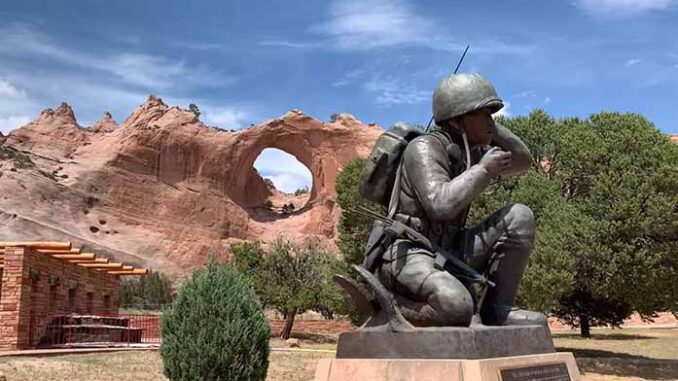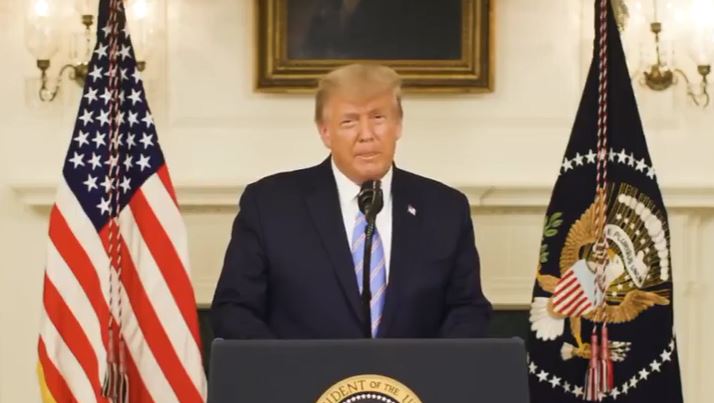
by Daniel Stefanski | Aug 18, 2023 | Economy, News
By Daniel Stefanski |
Inflation is forcing Americans to spend more of their hard-earned dollars over the past two years.
The rate of inflation has become a common refrain the past couple of years. While experts are hopeful that skyrocketing inflation may be a thing of the past, data shows that men and women around the nation continue to dig deeper into their wallets than they did before.
Mark Zandi, the Chief Economist for Moody’s Analytics Economics, recently tweeted that “the high inflation of the past 2+ years has done lots of economic damage. Due to the high inflation, the typical household spent $202 more in a July than they did a year ago to buy the same goods and services. And they spent $709 more than they did 2 years ago.”
Even with this analysis, Zandi expressed optimism with the future of inflation and the American economy, writing, “The trend lines look good, and suggest inflation is set to moderate further. Vehicle prices will decline more, so too will electricity prices, and the growth in the cost of housing will slow further.” However, he warned that his “biggest worry is the jump in oil prices, which bears close watching.”
The news about the current state of inflation comes as President Joe Biden heralds the anniversary of the Inflation Reduction Act, which was executed in an attempt to address the runaway inflation that has, at times, crippled certain sectors of the American economy. Biden posted, “One year ago, I signed into law one of the most significant laws ever enacted: the Inflation Reduction Act. Emerging from a deadly pandemic and doubts about America’s future – we delivered. Looking forward, not back. Taking on the special interests and winning.”
Arizona officials also weighed in on the significance of the law’s passage, sharing their perspectives on the progress (or lack thereof) since its execution. Phoenix Mayor Kate Gallego wrote, “Clean-energy jobs, a more secure water supply, and lower utility bills. These are just a few ways the Inflation reduction Act is delivering for Phoenix families since it became law one year ago today.”
Republican Senator Anthony Kern responded to Gallego, saying, “More left political lies. Has anyone’s electric bills, water bills, gas bills, and food bills been lowered??”
Daniel Stefanski is a reporter for AZ Free News. You can send him news tips using this link.

by Corinne Murdock | Aug 18, 2023 | Education, News
By Corinne Murdock |
Arizona Superintendent Tom Horne advised the K-12 community that Title IX doesn’t have any language forcing schools to obey gender ideology concerning policy on restroom, locker room, and shower facility usage.
The superintendent issued the remarks on Thursday in a brief guidance memo from the Arizona Department of Education (ADE). Horne explained that the current Title IX law only prohibits discrimination on the basis of sex, not gender identity. The Biden administration proposed a rule change to Title IX in 2021 that would expand the longstanding 1972 definition to include gender identity and sexual orientation, followed by a formal proposal by the Education Department last year, but that rule change has not yet been put into effect.
“Under the current Title IX, there is no language that compels schools to permit biological boys to use girls’ bathrooms, locker rooms or shower areas,” stated Horne. “The Biden administration has proposed changes to Title IX that might allow for this, but this proposal has no force of law until it is ruled on by the courts, which has not occurred.”
The Biden administration announced it would publish the final Title IX rule in October.
ADE advised schools to not implement policy allowing gender identity to dictate restroom, locker room, or shower facility access, mainly referring to the ability for males to access traditionally female spaces. ADE warned that males could still be held accountable for impropriety, regardless of ideology.
“Biological boys who expose themselves to girls could be violating indecent exposure laws and subject to arrest,” said ADE. “Schools can provide separate facilities — even small ones that are open to either gender — that meet the needs of transgender students without compromising the dignity of others.”
Horne explained further that he’s received numerous complaints from parents about schools permitting biological males to use private facilities intended originally and exclusively for females. Upset parents have reportedly told Horne they may leave schools permissive of gender ideologies. Rather than dissuade this type of thinking, Horne encouraged parents to exercise their right of school choice, possible through the universalized Empowerment Scholarship Account (ESA) Program.
“[T]hey are considering removing their daughter from schools that allow this,” said Horne. “In Arizona, they certainly have multiple school options from which to choose.”
State Rep. Nancy Gutierrez (D-LD18), minority whip, said the guidance was “dangerous” and violates federal law.
In June, the Ninth District Circuit Court ruled that discrimination based on perceived sexual orientation qualifies as sex-based discrimination under Title IX.
Title IX affects more than just bathroom, locker room, and shower area usage. It also applies to sports, something which progressive activists are also fighting to reform. Two families sued the state over its law banning biological boys from competing in girls’ sports.
Horne took up the case.
Despite the legal battles over Title IX not yet settled, Arizona’s K-12 public school boards have been taking initiative by adopting policy that would align with the expanded Biden administration version of Title IX. Last September, for example, one of the state’s top charter school chains, Legacy Traditional Schools, permitted gender identity to dictate bathroom usage.
Corinne Murdock is a reporter for AZ Free News. Follow her latest on Twitter, or email tips to corinne@azfreenews.com.

by Daniel Stefanski | Aug 17, 2023 | News
By Daniel Stefanski |
On Monday, Arizona officials honored Navajo Code Talkers and their heroic contributions to the Allied efforts during World War II.
Governor Katie Hobbs tweeted, “Today on Navajo Code Talkers Day, we honor and recognize the service of those who gave our country a critical advantage in WWII. Their patriotism will forever be remembered, and I am proud to recognize them on this day.”
Representative Stacey Travers added, “So honored to attend today’s event. Their legacy and commitment to their service to our freedoms is in wavering (sic). Thank you to those few surviving and to everyone’s families for your service.”
Attorney General Kris Mayes wrote, “The unbreakable code that changed the war. The Navajo Code Talkers used their language in WWII to encode messages that the other side could not decipher. We will always appreciate their dedicated service.”
Former President Ronald Reagan first set aside August 14 as “Navajo Code Talkers Day” in 1982.
In World War I, the Allies used the Choctaw language to help send communications around enemy lines. According to information provided by the Central Intelligence Agency, “Germany and Japan sent students to the United States after World War I to study Native American languages and cultures, such as Cherokee, Choctaw, and Comanche.” American officials were reticent to copy that same playbook in World War II due to opposing nations catching on to the language and codes.
However, thanks to Philip Johnston, the U.S. Marine Corps proceeded with a plan to use the Navajo language for World War II. Twenty-nine Navajos were installed as the first Code Talkers for the war and developed a code that served as a perfect solution for the duration of the efforts. Approximately 400 Navajos would serve in this program throughout the war.
Navajo Nation President Buu Nygren recognized the significance of the day, tweeting, “They not only helped defeat an enemy on the battlefield, during World War II, but protected a sacred language and culture. We will never forget their contributions and sacrifice. We owe an incredible debt of gratitude to these heroes on National Navajo Code Talkers Day.”
Daniel Stefanski is a reporter for AZ Free News. You can send him news tips using this link.

by Daniel Stefanski | Aug 17, 2023 | Education, News
By Daniel Stefanski |
Arizona’s Superintendent of Public Instruction is continuing his two-front political battle with the state’s attorney general.
On Monday, Republican Superintendent Tom Horne emailed the Office of the Arizona Attorney General about the issue of enforcing the state’s voter-approved English language instruction model.
Horne highlighted that “the voter-protected initiative, formalized as A.R.S. §15-752, specifically states that ‘all children in Arizona public schools shall be taught English by being taught in English, and all children should be placed in English language classrooms.’ ….The voter-protected initiative is not subject to being overruled by the Attorney General, the State Board, or anyone, including me. I must faithfully execute the law as it is written.”
The email from Horne followed correspondence between a Section Chief Counsel in Attorney General Kris Mayes’ Office and Horne’s Office. The Attorney General’s Office (AGO) noted that they had “continued to receive complaints from school districts that claim ADE is requiring Waivers for any ELL students enrolling in Dual Language Immersion (DLI) classes. If that is so, ADE (Arizona Department of Education) is acting contrary to law, as Waivers are not required for Sheltered English Immersion (SEI) Models approved by the State Board of Education.”
The AGO warned that “If the Department continues to place barriers in front of schools and their students trying to register for DLI classes, like requiring Waivers under A.R.S. 15-753, the Department’s actions exposes the Agency (and potentially individuals) to legal liability.”
The Superintendent took issue with the AGO’s use of “barriers” in its email, countering, “It is not erecting a barrier that I have urged school districts to not violate the law. I have pointed out a provision of the statute: Under the initiative, if a parent of any student in Arizona sues and prevails for violation of the statute, the School Board members and Superintendents responsible can be removed from office and unable to run for election again for five years.”
Horne called the AGO’s warning “offensive and unworthy of the Attorney General’s office.” He predicted that Mayes would “not win legal arguments to ignore voter-protected initiatives by making those kind of empty threats.” He promised to remain committed to his duty to uphold state law regardless of the threats made against him and his office.
He then took time to tout the benefits of a structured English immersion model, saying, “When I took office in 2003, bilingual education was common. The one-year rate to become proficient in English was a pathetic 4%. At that rate almost no one would ever become proficient, and they would fail in the economy…After we adopted structured English immersion, and put a lot of emphasis on teaching teachers how to do it, the proficiency rate went up to 31%. At that rate, after three or four years, almost everyone becomes proficient.”
In conclusion, Horne exhorted the AGO to “pay attention to what is in the academic interests of the students, as shown by the data, and what is required by the voter-protected initiative, and stop making threats.”
The schools chief’s release added that “Horne intends to pursue this matter in a legal challenge,” assuring Arizonans that this saga between the two state officials would continue for months to come.
Daniel Stefanski is a reporter for AZ Free News. You can send him news tips using this link.

by Corinne Murdock | Aug 16, 2023 | News
By Corinne Murdock |
The reactions from Arizona’s politicians reflect the greater divide along party lines, with Democrats hailing the latest indictment of former President Donald Trump and Republicans criticizing it.
On Monday, a grand jury in Georgia indicted Trump in the Fulton County Superior Court, listing 41 counts against the former president:
- violation of the Georgia Racketeer Influenced and Corrupt Organizations (RICO) Act;
- solicitation of violation of oath by a public officer (six counts);
- false statements and writings (11 counts);
- impersonating a public officer;
- conspiracy to commit impersonating a public officer;
- forgery in the first degree (two counts);
- conspiracy to commit forgery in the first degree (two counts);
- criminal attempt to commit false statements and writings;
- conspiracy to commit false statements and writings (two counts);
- conspiracy to commit solicitation of false statements and writings;
- filing false documents;
- criminal attempt to commit filing false documents;
- conspiracy to commit filing false documents;
- influencing witnesses;
- criminal attempt to commit influencing witnesses (two counts);
- conspiracy to commit election fraud (two counts);
- conspiracy to commit computer theft;
- conspiracy to commit computer trespass;
- conspiracy to commit computer invasion of privacy;
- conspiracy to defraud the state;
- and perjury
Rep. Andy Biggs (R-AZ-05) called the indictment a “witch hunt.”
The congressman declared that the judicial system was weaponized against a former president for political reasons. “The American people see straight through these sham political weapons,” said Biggs.
Rep. Raúl Grijalva (D-AZ-07) took the opposite view. Grijalva said that this latest indictment proved the justice system is working as it should.
“These indictments are proof that our justice system is working, and the American people can see through Trump’s cons and lies for what they are – crimes,” said Grijalva.
In an interview with “Pod Save America” on Monday, Rep. Ruben Gallego (D-AZ-03) said Trump represents a “threat to democracy” and expressed his gratitude that legal action has been taken against him.
State Rep. Cory McGarr (R-LD17) criticized the use of Trump’s tweets (now called “posts” under the X rebranding by Elon Musk) as grounds for prosecution, equating Monday’s indictment to a third-world country proceeding. McGarr also reposted an X post from Florida Republican Rep. Matt Gaetz, who called the grand jury process “tainted and corrupt.”
“This is what low quality attorneys can accomplish in 3rd world countries where you prosecute political opponents,” posted McGarr.
Other Republicans simply pledged their allegiance to the former president. State Sen. Anthony Kern (R-LD27) reaffirmed his support for Trump as the 2024 GOP candidate.
Rep. Eli Crane (R-AZ-02) said he and the people at large desire to have Trump return for a second term.
Some of the acts listed in the Fulton County Superior Court indictment cited online speech as the basis for conspiracy, a charge echoing a recent precedent set by the case of Douglas Mackey, better known for his social media personality “Ricky Vaughn.” In March, a jury found Mackey guilty of voter suppression for his right-wing satirical tweets during the 2016 election; Mackey faces up to 10 years in prison. Mackey wasn’t arrested until Jan. 27, 2021: several weeks after the January 6 incident at the Capitol, and exactly one week after President Joe Biden’s inauguration.
Trump is under four indictments currently, all issued this year.
In March, a New York grand jury indicted the former president over alleged “hush money” payments to porn star Stormy Daniels prior to the 2016 election; in that case, People of the State of New York v. Trump, Trump faces 34 felony charges.
In June, a Florida grand jury indicted Trump and his personal aide and valet, Walt Nauta, over the handling of classified documents after his presidency; in that case, United States of America v. Donald J. Trump, Waltine Nauta, and Carlos De Oliveira, Trump faces 37 charges.
Earlier this month, a federal grand jury indicted Trump over his alleged participation in the January 6 incident at the Capitol and alleged attempt to overturn the 2020 election; in that case, United States of America v. Donald J. Trump, Trump faces four charges.
Corinne Murdock is a reporter for AZ Free News. Follow her latest on Twitter, or email tips to corinne@azfreenews.com.

by Corinne Murdock | Aug 15, 2023 | News
By Corinne Murdock |
Rep. Ruben Gallego (D-AZ-03) called Republican Alabama Sen. Tommy Tuberville a “sh*thead” for preventing military promotions in opposition to paid time off (PTO) for female military members obtaining abortions.
Gallego issued the remarks in an interview with “Pod Save America,” a California-based progressive podcast hosted by former Obama aides Jon Lovett, Dan Pfeiffer, and Tommy Vietor.
“He’s a sh*thead,” said Gallego. “Tommy and his, you know, probably getting knocked too many times in the head, has decided to block a lot of the promotions of some of our top leaders. […] Tommy Tuberville just doesn’t understand that [we have the strongest military], he just snorts up Fox News information and tries to spit it out and doesn’t understand the real nuances of the military.”
Tuberville has argued that PTO for abortion is unlawful.
Tuberville also argued that such a policy change requires congressional approval, not a unilateral bureaucratic decision.
Gallego argued that abortions constituted a standard of military readiness.
“Women that need abortion care, and if they’re in a state that does not provide that, are now not going to be able to take paid time off, which we are giving them paid time off that they earned, to travel to a state to receive that abortion care, for whatever reason that is,” said Gallego. “If you’re a woman right now, do you want to join a military that’s not going to give you the freedom to travel should you need an abortion for whatever reason possible?”
Gallego characterized abortions as a form of liberty. He further argued that racial and sexual diversity is a necessary component of the military. Gallego said that the military shouldn’t be intimidating to join.
“Making [the military] accepting and welcoming is going to be important for you to recruit them,” said Gallego.
Gallego further argued that Russia is losing the war to a “woke Ukrainian army.” Earlier this month, Ukraine’s Territorial Defense Forces named a transgender woman, Sarah Ashton-Cirillo, as their spokesman. Ashton-Cirillo, a former Nevada resident, first arrived in Ukraine last March to report on the war for LGBTQ Nation.
Prior to leaving for Ukraine, Ashton-Cirillo infiltrated the Nevada GOP as a covert political operative from 2020 through 2021. Ashton-Cirillo’s reported goal was to write an investigative book on Republicans and help her friend, Democratic candidate Nadia Krall, get elected to local judgeship as a Republican. Krall won. Ashton-Cirillo then ran briefly for the Las Vegas City Council in 2021.
In Gallego’s interview, the congressman also remarked briefly on the indictments against former President Donald Trump, calling him a “threat to democracy.”
Corinne Murdock is a reporter for AZ Free News. Follow her latest on Twitter, or email tips to corinne@azfreenews.com.






